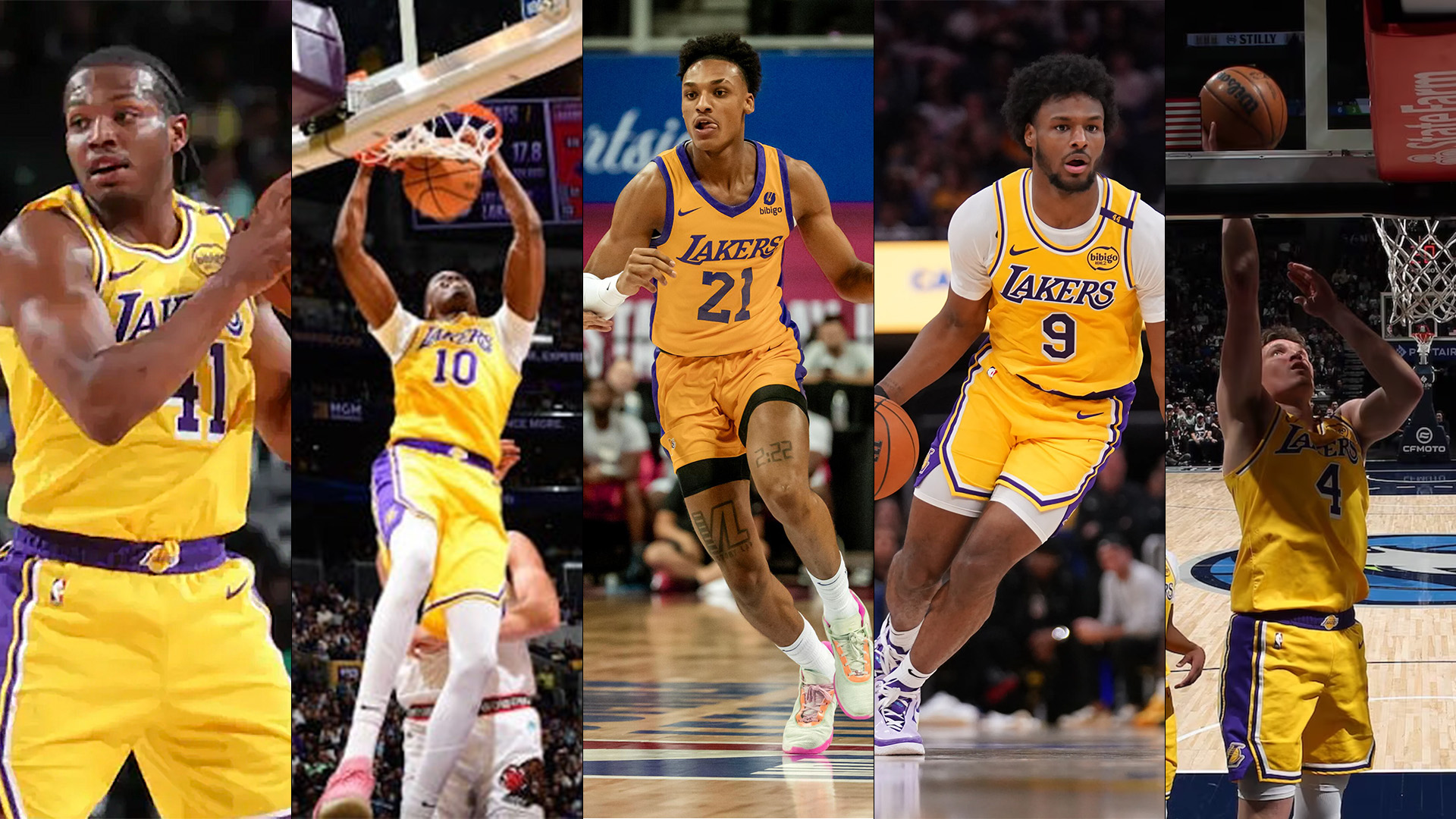By Jeremiah Zermeno
LeBron James:
In the annals of sports history, few names have rung as profoundly as LeBron James. A figure whose influence extends far beyond the basketball court, LeBron’s journey from the streets of Akron, Ohio, to the pinnacle of the NBA is a tale of grit, talent, and unyielding ambition. His career—marked by championships, accolades, and social impact—paints the portrait of a man who has not only redefined the game but has also become an enduring symbol of hope and resilience for countless fans around the world.

Early Life:
Born on December 30, 1984, LeBron Raymone James faced a challenging upbringing. Raised primarily by his single mother, Gloria, he experienced poverty firsthand. The two moved frequently, often relying on the goodwill of friends and family. Despite these hardships, young LeBron found solace and purpose in basketball. His natural talent was evident from an early age, and by the time he entered St. Vincent–St. Mary High School, he was already a local celebrity.
His high school career was nothing short of spectacular. Playing for the Fighting Irish, LeBron led his team to three state championships and gained nationwide attention. The hype peaked when Sports Illustrated featured him on its cover, declaring him “The Chosen One.” This moniker set unprecedented expectations for the young athlete. As LeBron dominated high school courts, it became clear that he was destined for NBA greatness.
NBA Arrival:
In 2003, the Cleveland Cavaliers made LeBron the first overall pick in the NBA Draft. His arrival marked a new era for the franchise and for the city of Cleveland, which had long endured a championship drought. From his very first game, LeBron showcased a dazzling blend of size, speed, and skill rarely seen in the league. He averaged 20.9 points per game in his rookie season and won the NBA Rookie of the Year award.
Despite his stellar individual performances, the Cavaliers initially struggled in the playoffs. The team gradually improved, with LeBron emerging as a perennial All-Star and the franchise’s backbone. In the 2006–2007 season, he propelled the Cavaliers to their first-ever NBA Finals, where they faced the San Antonio Spurs. Although the Cavaliers were swept, LeBron’s explosive play and limitless potential were undeniable. Critics, however, began to question his ability to secure a championship—a narrative that would follow him for years.
“Cleveland’s Golden Boy”:
LeBron’s early years in Cleveland were defined by relentless pursuit of excellence. Fans embraced him as their savior, but the burden of expectation weighed heavily. Each season brought hope followed by disappointment, as the Cavaliers failed to build a true championship-caliber roster around him. Despite multiple MVP awards and individual success, his mission to bring a title to Cleveland remained unfulfilled.
In 2010, after years of frustration, LeBron made a seismic decision that would forever alter his career and public perception. In a televised special called The Decision, he announced he was leaving Cleveland to join the Miami Heat. The backlash was immediate and fierce. Many fans viewed the move as a betrayal, sparking debates about loyalty and legacy that still reverberate today.
The Miami Era:
Teaming up with superstars Dwyane Wade and Chris Bosh, LeBron formed a “superteam” in Miami—both celebrated and criticized. The Heat quickly became a dominant force, reaching the Finals in four consecutive seasons (2011–2014). LeBron thrived in this new environment, winning two championships (2012 and 2013) and earning two more MVP awards.
During this period, LeBron refined his game, improving his shooting and developing a more versatile offensive repertoire. He evolved into a player who could dominate from anywhere on the court—whether through powerful drives, pinpoint passing, or effective three-point shooting. Yet, even amid success, the sting of The Decision lingered. He became a lightning rod for criticism, but his resilience never faltered.
The ultimate test came in the 2011 NBA Finals against the Dallas Mavericks. The heavily favored Heat lost the series, and LeBron’s underwhelming performance was scrutinized. Many labeled him someone who shrank in clutch moments. The humbling defeat fueled his determination for redemption.
The Return to Cleveland:
In 2014, LeBron announced his return to the Cavaliers, stating in a heartfelt letter that he wanted to deliver a championship to his home city. His return reignited hope and excitement but also renewed pressure. With the addition of Kyrie Irving and Kevin Love, the Cavaliers built a new “Big Three.”
LeBron’s second stint in Cleveland transformed the franchise. The Cavaliers returned to the Finals in 2015, facing the Golden State Warriors, who had set a regular-season record with 73 wins. Though Cleveland fell short that year, the stage was set for an epic showdown in 2016.
What followed was nothing short of legendary. Trailing 3–1 in the Finals, LeBron and the Cavaliers mounted one of the most remarkable comebacks in sports history. In Game 7, LeBron delivered a heroic triple-double, punctuated by “The Block”—a crucial defensive play that became iconic. The Cavaliers clinched their first championship in franchise history, ending Cleveland’s 52-year title drought. The victory cemented LeBron’s legacy as a hometown hero.
Beyond Basketball:
LeBron James is not just famous for his basketball brilliance; he is equally known for his impact off the court. As his stardom grew, he used his platform to uplift others and advocate for change. He has spoken out on pressing issues such as racism, police violence, and voter suppression, demonstrating a commitment to social justice.
In 2018, he opened the “I PROMISE School” in Akron, Ohio, designed to support at-risk youth by providing resources and opportunities for success. The school stands as a testament to his dedication to the next generation.
LeBron also co-founded More Than a Vote, a nonprofit initiative that encourages civic engagement among underrepresented communities. With his influence, he has helped amplify voices that might otherwise go unheard. While his activism has drawn both admiration and criticism, it underscores his willingness to tackle difficult issues despite the personal and professional risks.
The Next Chapter:
As LeBron entered the latter stages of his career, questions arose about his ability to sustain elite performance. Yet, with the Los Angeles Lakers, he proved doubters wrong, leading the team to the 2020 NBA Championship—his fourth title. The victory further solidified his reputation for defying age and expectations.
Adding intrigue to his career is his stated desire to one day share the court with his son, Bronny James. The possibility of a father-son duo in the NBA is unprecedented, and fans eagerly await this potential historic moment.
Conclusion:
LeBron James’s journey from Akron to NBA superstardom embodies perseverance, growth, and social responsibility. Throughout his career, he has shattered records, won multiple MVP awards, and claimed championships. Yet his greatest legacy may be the lives he has touched beyond the court.
As the basketball world continues to witness LeBron’s extraordinary career, one truth remains clear: his legacy transcends accolades and championships. He has become a beacon of hope, a source of inspiration, and a powerful force for change. With each game, decision, and act of generosity, LeBron builds a legacy that will endure for generations. His unwavering dedication to excellence—on and off the court—secures his place among the greatest to ever play the game.





